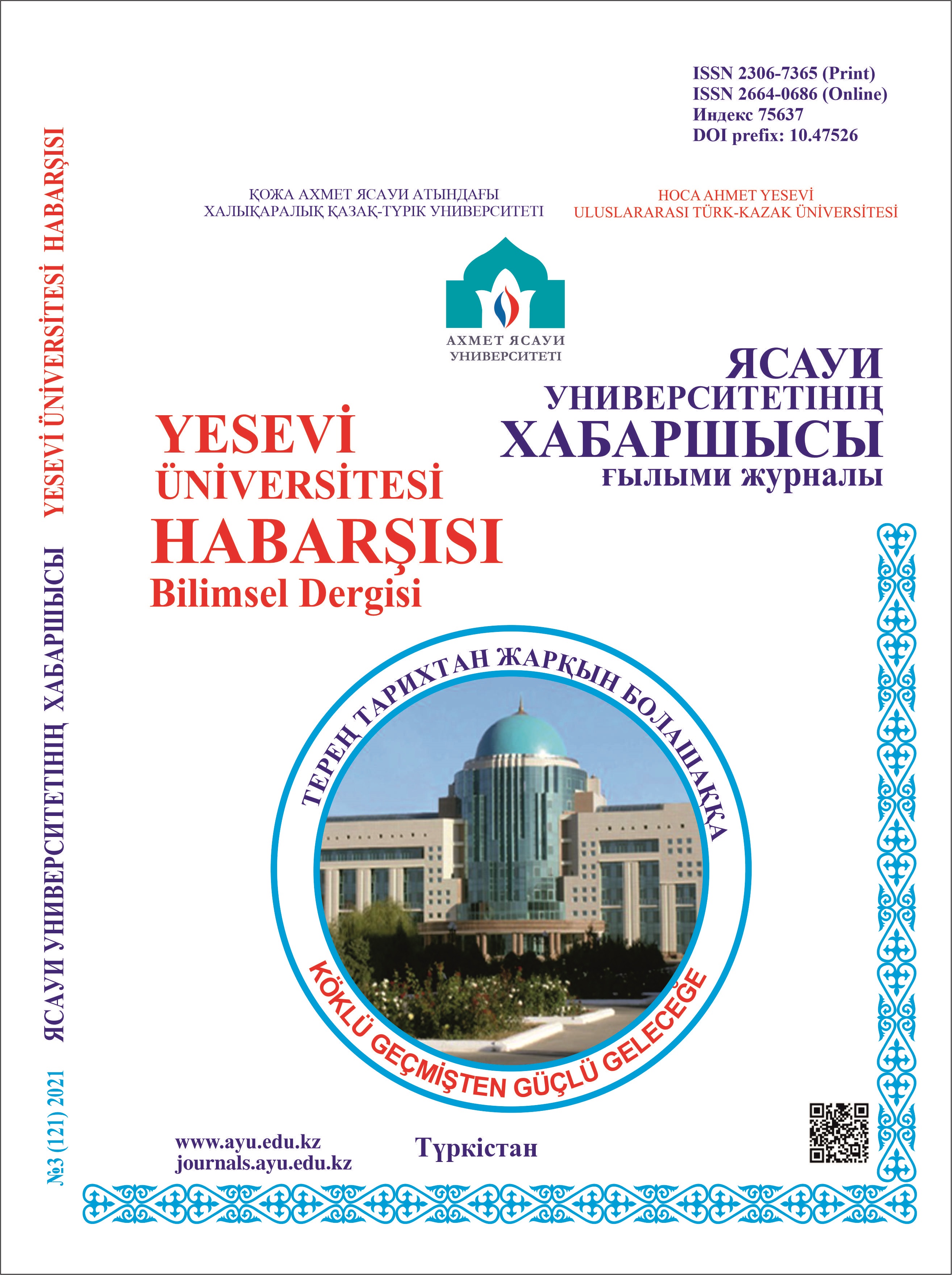E-POSTA YOLUYLA PRAGMATİZMİ VE ÖZ YETERLİLİĞİ ARTIRMAK
238 239
Anahtar Kelimeler:
pragmatik yeterlilik, öz yeterlilik becerileri, yazma, öğrenme, öğrenciler.Özet
Şu anda öğrenciler arasında pragmatik becerilerin ve öz yeterliliğin geliştirilmesinin önemi artmaktadır. Bu çalışma, öğrencilerin pragmatik yeterliliklerini ve öz yeterlik becerilerini e-posta sorgularını analiz ederek incelemektedir. Pragmatik yetkinlik, dili anlama ve akıllı kullanım dahil olmak üzere etkili iletişim için çok önemli olan sosyal bir bağlamdır. Pragmatik yeterlilik, iyi dil bilgisi başarılı iletişim için yeterli olmadığından, dil ediniminin ayrılmaz bir parçası haline geldi. Akademik ve profesyonel ortamlarda e-posta yoluyla iletişim daha yaygın hale geldiğinden, öğrencilerin pragmatik ve öz yeterlilik becerilerini geliştirmeleri önemlidir. Ayrıca e-posta, yüksek öğretim kurumlarındaki öğretmenler ve öğrenciler arasında resmi bir iletişim aracı haline gelmiştir. Öğrenciler, ek ödevler istemek, yüz yüze toplantılar düzenlemek ve tavsiye mektupları talep etmek için genellikle kurumsal postayı kullanırlar. Bu, yüksek öğretim kurumlarında talep yaratmanın yaygın bir söylem haline geldiği anlamına gelir.
Öğretmenlere güç ilişkilerini, kültürel normları ve diğer toplumdilbilimsel faktörleri göz önünde bulundurarak e-posta yazmak, pragmatik alanında yeterli bilgi gerektirir. Bu çalışma, Kazakistan yüksek öğrenimi bağlamında öğrencilerin pragmatik yeterliliklerini ve öz yönetim becerilerini inceliyor, sorunlar hakkında değerli bilgiler veriyor ve öğretimde yazma becerilerinin iyileştirilmesi için öneriler sunuyor.
Referanslar
Economidou-Kogetsidis M. “Please answer me as soon as possible”: Pragmatic failure in non-native speakers’ e-mail requests to faculty // Journal of Pragmatics. – 2011. – Т. 43. – №13. – P. 3193–3215.
Aijmer K. “Will you fuck off please”. The use of please by London teenagers // Sociocultural Pragmatics. – 2015. – №3(2). – P. 127–149.
Thomas J. Cross-cultural pragmatic failure // Applied linguistics. – 1983. – №4(2). – P. 91–112.
Akmagambetova N., Zhorabekova A., Kassymova G. Formation of Tolerance in Teenage Students in the Modern Educational Environment Via a Pragmatic Approach // Iasaui universitetіnіn habarshysy. – 2023. – №2(128). – P. 367–379. https://doi.org/10.47526/2023-2/2664-0686.29
Griffiths P. Introduction to English semantics and pragmatics. – Edinburgh university press, 2006. – 192 p.
Economidou-Kogetsidis M. Interlanguage request modification: The use of lexical/phrasal downgraders and mitigating supportive moves // Multilingua. – 2009. – №28. – P. 79–112.
McCarthy P., S. E. W. Writing self-efficacy: A study of the beliefs and attitudes of student writers // Journal of Educational Psychology. – 1985. – №77(1). – P. 35–41.
Shell D.F., Murphy C.L., Bruning R. The role of self-efficacy in writing: A study of college students // Journal of Educational Psychology. – 1989. – №81(1). – P. 42–50.
Chen C.F.E. The development of e-mail literacy: From writing to peers to writing to authority figures // Language Learning & Technology. – 2006. – №10(2). – P. 35–55.
Blum-Kulka S. Indirectness and politeness in requests: Same or different? // Journal of pragmatics. –1987. – №11(2). – P. 131–146.
Durlak J., Weissberg R., Dymnicki Allison B., Taylor Rebecca D., Schellinger, Kriston B. The impact of enhancing students' social and emotional learning: a meta-analysis of school-based universal interventions // Child development. – 2011. – Vol. 82, №1. – P. 405–432. http://doi.org/10.1111/j.1467-8624.2010.01564.x
Chung Yoonsook, Yoo Jungsook, Kim Sungwon, Lee Hyunju, Zeidler D. Enhancing students’ communication skills in the science classroom through socioscientific issues // International Journal of Science and Mathematics Education. – 2014. – №14. – P. 1–27. http://doi.org/10.1007/S10763-014-9557-6
Sun Ting, Wang Chuang. College students’ writing self-efficacy and writing self-regulated learning strategies in learning English as a foreign language // System. – 2020. – Vol. 90. http://doi.org/10.1016/j.system.2020.102221
Cleary T., Velardi Brittany C., Schnaidman B. Effects of the Self-Regulation Empowerment Program (SREP) on middle school students' strategic skills, self-efficacy, and mathematics achievement // Journal of School Psychology. – 2017. – №64. – P. 28–42. http://doi.org/10.1016/j.jsp.2017.04.004
Succi Chiara., Canovi Magali. Soft skills to enhance graduate employability: comparing students and employers’ perceptions // Studies in Higher Education. – 2020. – №45. – P. 1834–1847. http://doi.org/10.1080/03075079.2019.1585420
Häkkinen P., Järvelä Sanna, Mäkitalo-Siegl Kati., Ahonen A., Näykki Piia, Valtonen Teemu. Preparing teacher-students for twenty-first-century learning practices (PREP 21): a framework for enhancing collaborative problem-solving and strategic learning skills // Teachers and Teaching. – 2017. – №23. – P. 25–41. http://doi.org/10.1080/13540602.2016.1203772
Bandura A. Self-efficacy: Toward a unifying theory of behavioral change // Psychological Review. – 1977. – №84(2). – P. 191–215. https://doi.org/10.1037/0033-295X.84.2.191
Pendergast D., Garvis S., Keogh J. Pre-service student-teacher self-efficacy beliefs: An insight into the making of teachers // Australian Journal of Teacher Education. – 2011. – Vol. 36. – P. 46–58. http://doi.org/10.14221/AJTE.2011V36N12.6
Pajares F. Self-efficacy during childhood and adolescence: Implications for teachers and parents // In F. Pajares, T. Urdan (Eds.). Self-efficacy beliefs of adolescents. – Information Age Publishing, 2007. – P. 339–367.
Teng F., Zhang X., Hsu Y. The effects of self-efficacy on writing performance: The mediating role of writing anxiety // Journal of Educational Psychology. – 2018. – №110(5). – P. 678–691.

